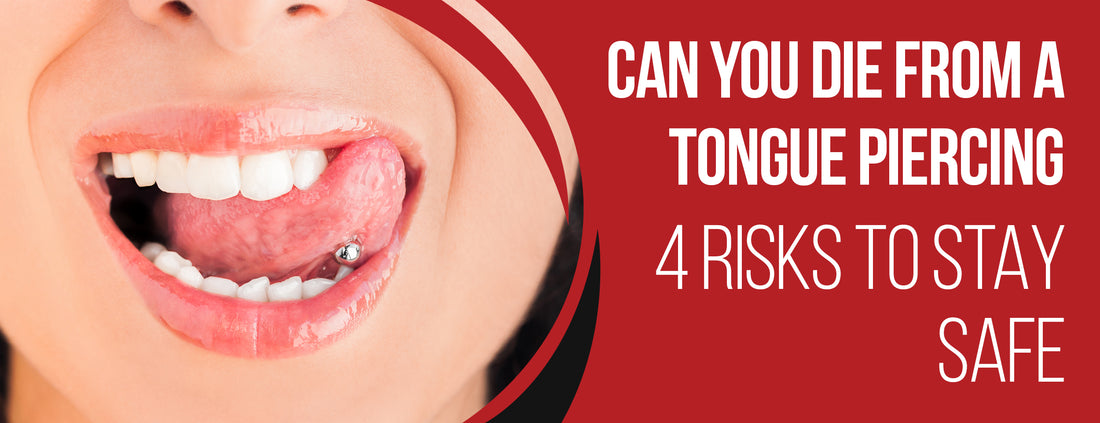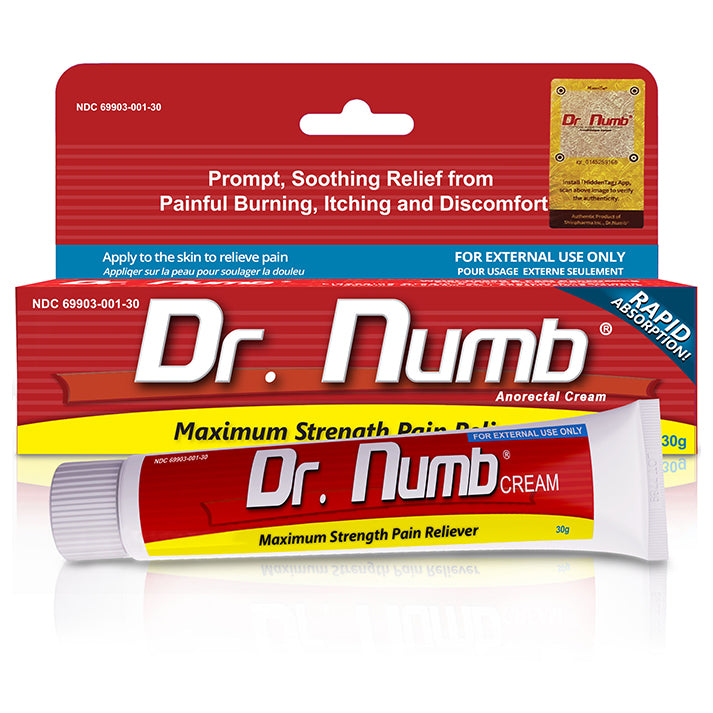It may seem like a cool and trendy way to express yourself, but it's essential to understand the risks that come along with it. It's rare, but there have been cases where complications from tongue piercings have led to severe health issues that cannot be ignored.
It is easy to spread infection to the brain and other body parts through the mouth, as it is moist and full of bacteria. You may be disfigured or killed as a result of this. A local girl almost died after a tongue piercing caused a brain abscess.
In this blog post, we'll look at the potential risks of tongue piercings, factors that increase complications, and ways to minimize those risks.
Can You Die From A Tongue Piercing: Risks

Several health risks come with the tongue piercings trend. Here are some potential dangers associated with tongue piercings:
Infection
One of the most prevalent risks associated with tongue piercings is infection. Placing a tongue ring creates an open wound that increases the risk of bacterial infection. The tongue's unique anatomy can make it challenging to keep the penetrating clean, leading to potential complications.
Some common signs of infection include pain, swelling, and discharge. If left untreated, severe conditions can lead to sepsis, which can be life-threatening.
Damage to Nerves and Blood Vessels
Tongue piercings risk damaging nerves and blood vessels in the tongue. Piercing through blood vessels can cause significant bleeding and hemorrhaging, which can lead to life-threatening complications. If a nerve is damaged, an individual may experience loss of sensation or movement in parts of their tongue or face.

Swelling and Inflammation
Swelling and inflammation are common side effects of tongue piercings. While some swelling is normal, excessive swelling can interfere with breathing and lead to other complications. Inflammation can also lead to difficulty speaking or swallowing and prolonged healing times.
Oral Health Issues
Tongue piercings can also lead to several oral health issues. Metal jewelry can chip or crack teeth, and constant contact with teeth and gums can lead to gum recession and tooth abrasion. Tongue piercings can cause bad breath and alter taste perception.
Why Tongue Piercings Increase Your Risk of Death: 4 Facts

Like any other body modification, it poses risks, not just during the piercing process but also during the healing process. Some factors increase the risk of tongue piercing:
Unqualified Piercer
One of the most significant risks of getting a tongue piercing is using an unqualified piercer. Working with someone who lacks experience and proper training can increase the likelihood of complications, including infections and other serious health issues. Some risks of using an unqualified piercer include:
- Increased risk of infection: Unqualified piercers may not take the necessary steps to sterilize their equipment, putting the client at risk of contracting an infection.
- Poor placement: An inexperienced piercer may need to learn how to properly place the jewelry, which can lead to improper healing, discomfort, and other issues.
- Allergic reactions: An unqualified piercer may not know about materials to which the client may have an allergy.
Poor Aftercare
Poor aftercare is another factor that can increase the risk of complications with tongue piercing. Proper cleaning and aftercare are critical to ensure the piercing heals correctly and avoid infections and other issues. Some risks associated with poor aftercare include:
- Infection: Failing to clean the piercing regularly can lead to an infection, which can be painful and even dangerous.
- Prolonged healing time: Poor aftercare can cause the tongue piercing to take much longer, leading to discomfort and other issues.
- Pain and complications: If the piercing does not heal properly, it may be painful, interfere with things like eating and talking, and potentially lead to other complications.

Reckless Behavior
People who get a tongue piercing and engage in reckless behavior should be cautious. Smoking and drinking alcohol can both increase the risk of complications, including infection and slower healing times. Some of the risks of reckless behavior include:
- Infection: Smoking and drinking can both weaken the body's ability to fight infection and disease.
- Prolonged healing time: Reckless behavior can also impair the body's healing ability, leading to a more extended recovery period.
- Misshapen Piercing: Smoking after a tongue piercing can cause the "exit" hole to be misshapen because of the heat from smoking.
Pre-existing Medical Conditions
There are also risks associated with pre-existing medical conditions associated with tongue piercing. Individuals with specific health issues must consult their doctor before getting a tongue piercing. Some risks related to pre-existing medical conditions include:
- Increased risk of infection: Certain medical conditions weaken the immune system, increasing infection risk.
- Hypersensitivity to certain materials: People with certain medical conditions may be more prone to allergic reactions, which can be exacerbated by the materials used in tongue piercings.
- Pain and discomfort: For people with certain medical conditions, the pain associated with a tongue piercing can be particularly intense, making healing difficult.
How to Reduce Tongue Piercing Risk: 3 Tips

Proper aftercare and good oral hygiene are essential for reducing the risk of complications. A piercing is an open wound requiring attention and care to ensure it heals properly and without incident. Below are some tips on reducing the risk of complications from a tongue piercing:
Proper Aftercare
After getting a tongue piercing, ensure you follow your piercer's instructions. This typically involves rinsing your mouth with saline solution or an antimicrobial mouthwash a few times daily and avoiding certain foods and drinks for a set period.
Good Oral Hygiene
Keeping good oral hygiene is crucial to preventing infection, which can have serious consequences. Avoid touching your piercing unnecessarily, and brush your teeth twice daily.

Regular Check-Ups
Even with proper aftercare and oral hygiene, complications can still arise. Regular checkups with your piercer or a dental professional are necessary to monitor the healing process and ensure no piercing issues.
Conclusion
A person should know the potential risks of tongue piercing before proceeding. While the risk of complications may seem minimal, they could lead to serious health issues.
Ensuring that you go to a qualified piercer, follow proper aftercare procedures, and maintain good oral hygiene are all essential to reducing the risk of complications. Remember, when it comes to tongue piercing, safety should always come first.















![The Recovery Time and Stages of Nipple Piercings [Best Practices]](http://drnumb.com/cdn/shop/articles/How_Long_Do_Nipple_Piercings_Take_To_Heal__3_Stages_Explained.jpg?v=1714373243)

